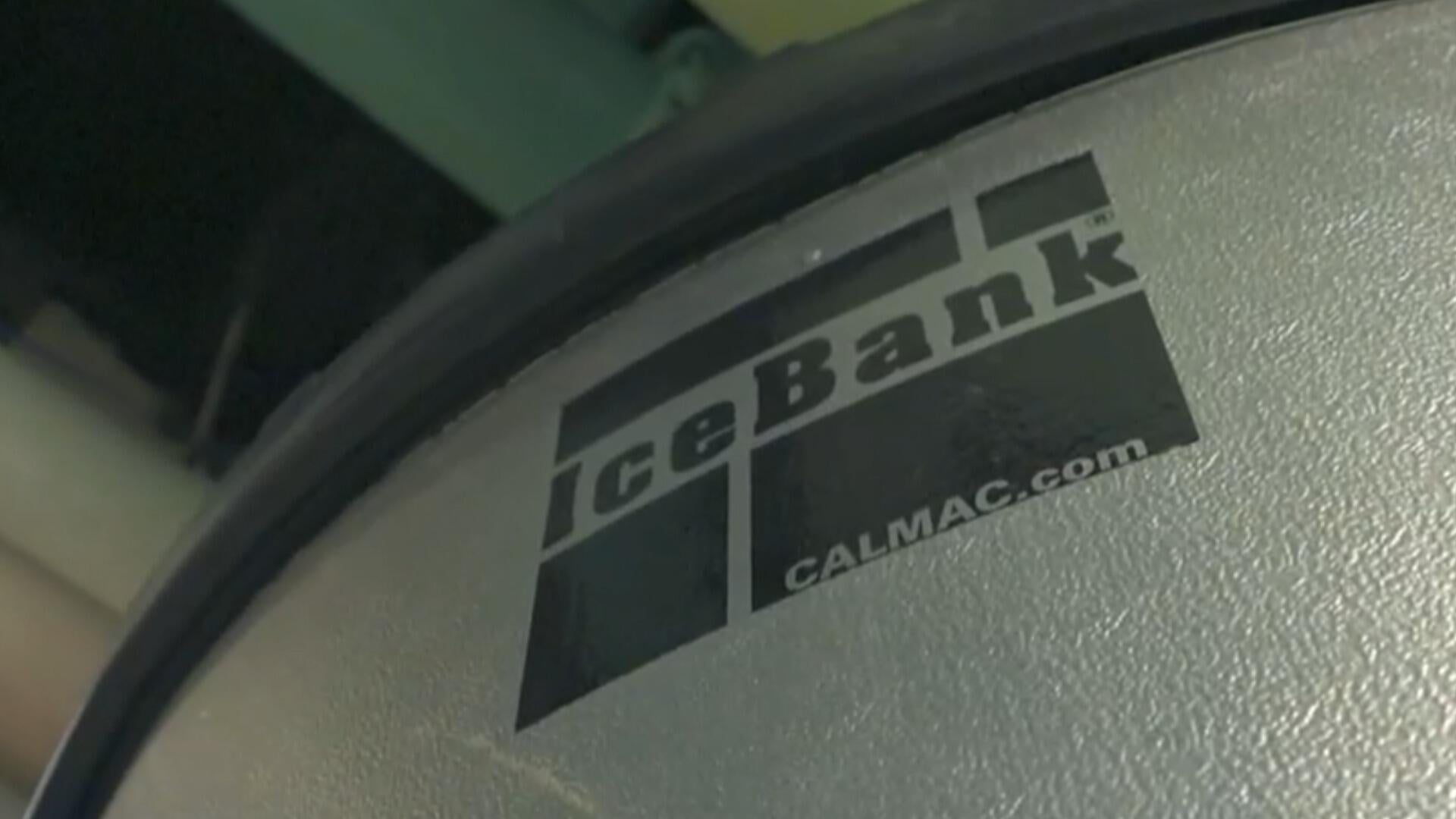An innovative "ice battery" system is being used to cool buildings and lower energy costs
"Ice batteries" aim to cut electric costs

"Ice batteries" aim to cut down on high electric costs of air conditioning 02:53New York — In the heart of Manhattan, four stories below ground, the iconic Eleven Madison skyscraper is being air-conditioned using ice.
"There's about 500,000 pounds of ice created every night," said Holly Paeper, president of Trane Technologies Commercial HVAC Americas business, the company responsible for installing the system it calls an ice battery. "And to put that into context, think about three city buses full of ice cubes."
The ice battery system freezes water at night when the cost of electricity is low. Then, during the day, when the price is high, the building is cooled with the previous night's ice instead of using expensive electricity. Trane says that this system can lower cooling costs by up to 40%.
"So, when everyone else is using their electricity in the middle of July to cool their building or to cool their homes, it's a big draw on the grid," Paeper said. "This building won't draw from that because it made its ice last night."
Air conditioning makes up about 20% of energy use in homes and businesses worldwide, according to a 2018 report from the International Energy Agency. But on the hottest days, it can account for more than 70% of electricity use during peak hours, per a 2023 IEA report.
"We've done installations at about 4,000 sites globally," Paeper said. "There are six million commercial buildings in the U.S. alone, and a very small fraction of them have installations like this."
The problem that scientists like Dr. Patrick Shamberger are trying to solve isn't an overall lack of energy — it's when too many energy consumers are trying to use electricity at the same time, which puts stress on the grid.
"We don't want to build a whole bunch of excess power plants to just sit around, never turned on until that hot, hot day in August," said Shamberger, an associate professor of materials science and engineering at Texas A&M. "It's a lot of capital investment that doesn't get used."
So, instead of building more power plants, the focus is on storing energy with a system such as ice batteries. But because the process of freezing water uses a lot of energy itself, Shamberger and others are testing new materials that don't need to get as cold as ice, but can still keep buildings cool.
"We take water, we add some other elements and molecules to it," Shamberger explained. "And based on the composition, we can control that temperature basically anywhere we want it, in the zero to 20 C range. And that's important, because what might work great here in Texas, maybe it's not the right temperature to store your heat at if you're in Nevada, or in Wisconsin, say."
According to an analysis released last month by the National Energy Assistance Directors Association, a Washington, D.C.-based energy advocacy group, home electricity bills in the U.S. this summer are expected to rise to an average of $784 for the summer period, from June through September, up 6.2% from last year's projected average of $737.
It marks the highest such average in the 12 years that NEADA has been tracking summer residential cooling.
Shamberger said he sees a world where this system can be used to cool homes.
"Absolutely, yeah...but we're a little bit far out, right?" he said.
cbsnews.com |





